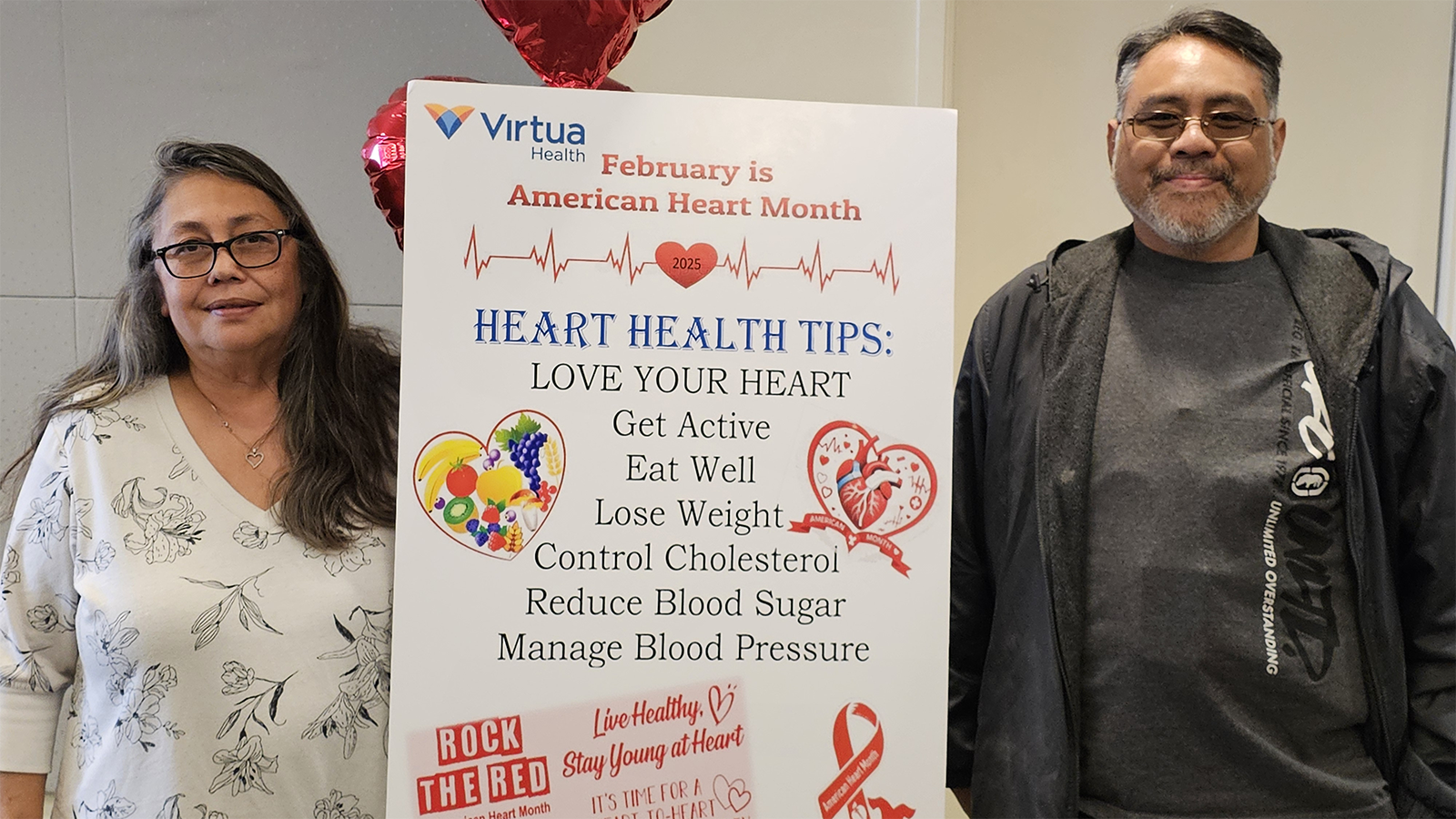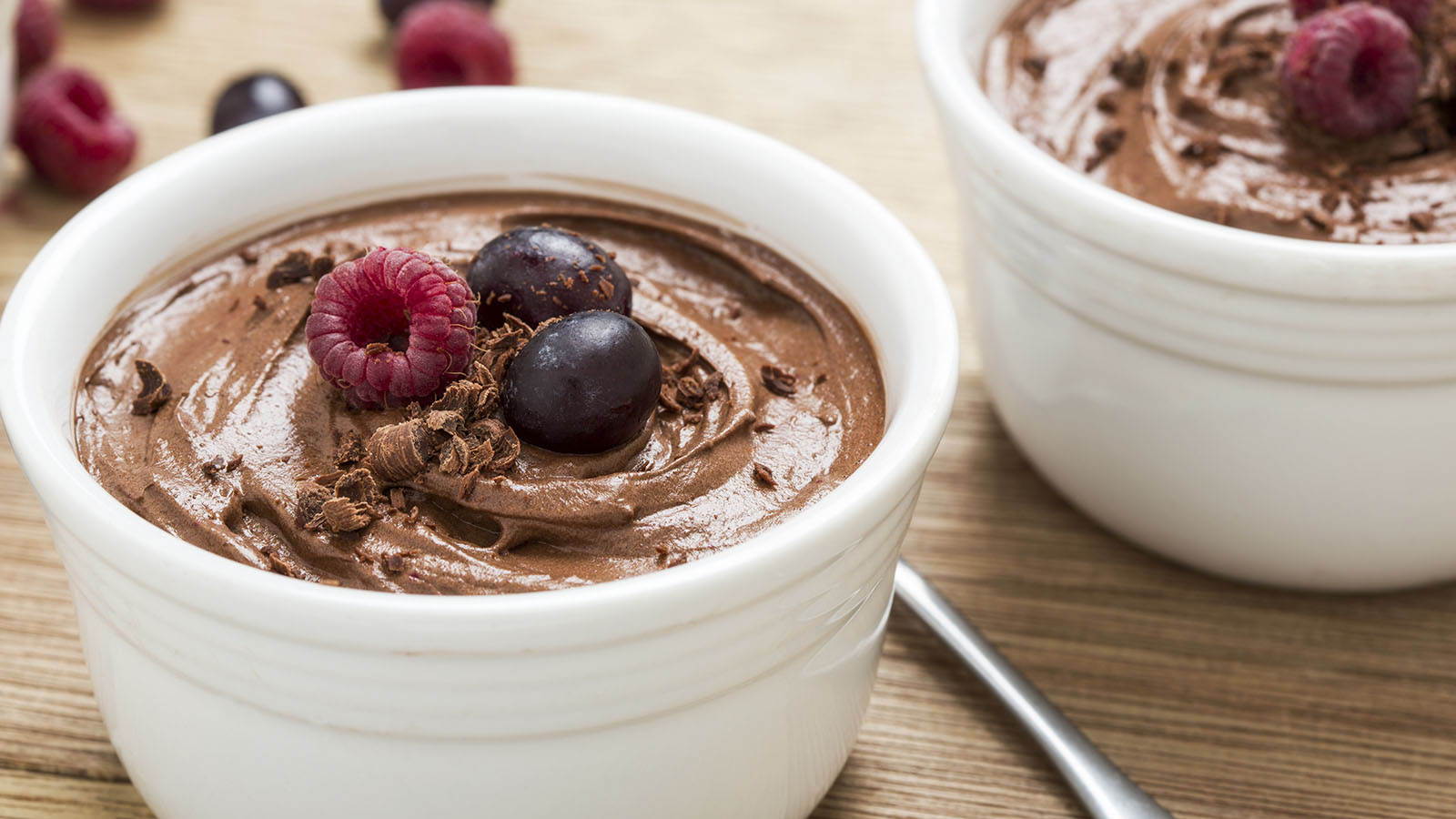Is Your Heart Age Older Than You?
You can calculate your “heart age” by tallying up your risk factors for heart attack and stroke. That number shows the years of strain you've added to your heart.
By Sweta Chandela, MD, Cardiologist – Virtua Cardiology
Hair color conceals grays. Cosmetics cover up wrinkles. But you can’t hide from your heart age—and if you’re like most Americans, your heart may have more years on it than you do.
You can calculate your “heart age” by tallying up your risk factors for heart attack and stroke, such as high blood pressure, smoking history, diabetes and body mass index (a measure of obesity). The resulting number expresses how many years of strain you’ve added to your cardiovascular system. For example, you could be 50, but the calculator says your heart age is 65.
Using data from all U.S. states and the long-term Framingham Heart Study, researchers with the Centers for Disease Control and Prevention recently found:
- On average, Americans’ hearts are 7 years older than they should be.
- Men’s average heart age was nearly 8 years older than their actual age, while women’s was 5 years higher.
- Half of men have a heart age 5 or more years older than their actual age.
- Two in five women have hearts that have aged an extra half-decade.
Heart age was highest for African-American men and women, averaging 11 years older than their chronological age. About 40 percent of New Jersey adults had hearts 5 or more years older than their actual age. New Jersey fared better than Pennsylvania and Delaware, but worse than California and Massachusetts.
Find the fountain of heart youth
You can’t turn back the clock on your chronological age, but you can certainly make lifestyle changes that can reduce your risk for a heart attack or stroke:
- Lower your blood pressure. A healthy blood pressure is lower than 120/80 mmHg.
- Reduce your cholesterol.
- If you have diabetes, work with your doctor to keep it under control.
- Maintain a healthy weight.
- Get at least 150 minutes a week of moderate-intensity exercise.
- Eat a diet rich in fruits, vegetables, whole grains lean proteins and low-fat dairy, and low in trans fats and sodium.
- If you don’t smoke, don’t start. If you smoke, get help to quit.
It’s never too late to improve your heart health. Talk to your doctor on how to get started.
Call 888-847-8823 to schedule an appointment with a Virtua heart specialist.
What’s your heart age?
Find out your heart age with this free calculator at virtua.org/heartcalculator. It only takes a few seconds and may be the kickstart you need to live a healthier lifestyle.
There's So Much More to Explore
Discover expert insights, inspiring stories, health tips, and more by exploring the content below!

Are You Eating Too Much Salt? High-Sodium Foods to Watch For

4 Exercise Tips to Help You Reverse High Blood Pressure

Timely Heart Care During a Heart Attack Helps Joe Feed the Community

3 Reasons Why Now's the Time to Find Relief From Varicose Veins

HeartTalk Magazine

Lifesaving Heart Care Creates a 'Bond That's Never Left Us'

How High Blood Pressure Affects Your Body

5 Interesting Facts About Your Heart

Get to the Bottom of Blood Pressure Numbers

CABG Surgery: What Women Should Know About Heart Health and Healing

When to Take Action for a Stronger Heart

Groundbreaking Renal Denervation Procedure Controls a Lifetime of High Blood Pressure

Patient Story: LVAD Mechanical Pump Strengthens Michael's Heart Function

Mitral Valve Surgery Keeps Yaneth Living the American Dream
Inside Look at Blood Vessels Aids PAD Treatment
Denise Davis: Pay Attention to Your Heart Health

Sweet Music: Trust, Teamwork Save Justin from Heart Attack

Complex Heart Surgery Nets James a Lifelong Friend

8 Key Steps to Better Blood Pressure Control

Signs You Should Get Treated For Vein Problems

One New Heart Valve Saves Two Lives in the Tritten Family

What You Need to Know About Heart Failure

6 Numbers Key to Keeping Your Heart Healthy

Five Mindfulness Tips That Can Help Heal Your Heart

Watchman Heart Device: a Technological Breakthrough for Blood Clot Prevention

Albert's Emergency Cardiac Surgery Is a 'Story of a Lifetime'

Love Your Heart: Essential Care Tips for Every Stage of Life

How Do I Measure My Blood Pressure at Home?

How Do I Improve My Cholesterol Levels?

3 Ways to Reduce Your Stroke Risk

How the Unique Stages of a Womans Heart Affect Her Health

Can Your Gut Health Affect Your Heart?
Advanced Heart Failure Therapies Get Bernadine Back to Full Speed

Keeping the Beat: Advanced Heart Surgery for Aortic Aneurysm

Heart-Healthy Summer Recipe: Hummus and Veggies

4 Delicious Heart-Healthy Recipes Perfect for Summer

Heart Healthy Summer Recipe: Dessert Parfait

Heart-Healthy Summer Recipe: Pear and Walnut Salad

Heart-Healthy Summer Recipe: Terrific Turkey Burgers
Atrial Fibrillation and Stroke: What's the Connection?
Heart Tests Your Doctor May Order
Managing Pregnancy for Mothers With Heart Conditions

Heart Healthy Recipe: Basil Pesto Pasta With Seared Vegetables

Heart Healthy Recipe Chocolate Avocado Chia Pudding
Keep Your Heart Rhythm in Check With Your Smartwatch
Mind Your Meds for Blood Pressure Risks
Magic Pill for Heart Health? Cut 300 Calories a Day
3 Smart Ways to Boost Your Heart Health
3 Best Exercises For Heart Health

Get Your Heart Pumping With These 25 Workout Songs
Your Chest Pain: Heartburn, Heart Attack, or Something Else?
3 Heart Healthy Recipes to Win Valentines Day
How Work and Home Stress Can Affect You
Why Improving Your Health Is Going To The Dogs And Cats
Why Younger Women Need Start NOW To Safeguard Their Hearts From Heart Attacks
Can You Die of a Broken Heart?
Mitral Valve Surgery Opens Doors for Improved Quality of Life
6 Healthy Habits to Start in Your 20s for Better Lifelong Health
Do You Have a Fatty Heart?
Get Pumped! Assist Devices Can Improve Heart Failure Symptoms
A Cardiologists Advice on Heart-saving Emergency Cardiac Care
Virtua Doctor’s Experience Is a Warning for All About COVID-19 and Strokes
You May Feel Fine, but Gregory Says "Don't Skip Your Medical Care"
In Sickness and in Health: Couples Often Share Heart Disease Risk
"Reduce Your Heart Disease Risk With a Plant-based Diet"
Hybrid Robotic Heart Surgery and Valve Replacement Restores Quality of Life
Can Marijuana Hurt Your Heart Health?
6 Tips for Restoring Your Heart Rhythm
Eat Smart for Your Heart
Cardiac Rehab: Strengthening Your Heart After Leaving the Hospital
Your Heart Needs A Good Nights Sleep
Are You at Risk for AAA—the Silent Killer?
The Cardio Oncology Team Protects Your Heart During Cancer Treatment
Get Relief From Painful Varicose Veins This Summer
Exercise Your Way to a Stronger Heart
Fish Oil: A Good Catch or a Scam?
My Heart Seems to Skip a Beat - Should I Be Worried?
Menu Planning? Try These 5 Heart-smart Substitutions

5 Health Risks Tied to Weight

